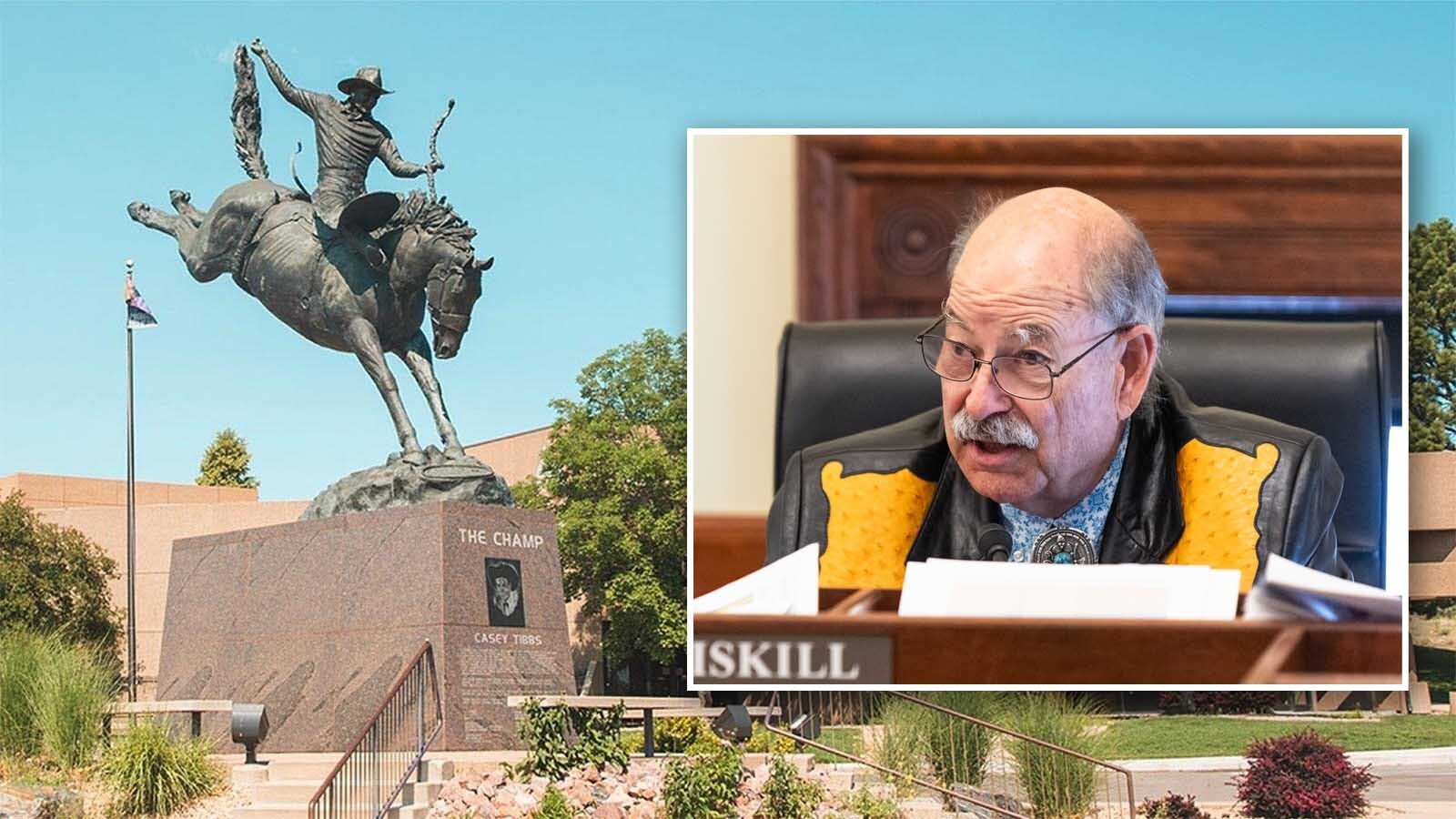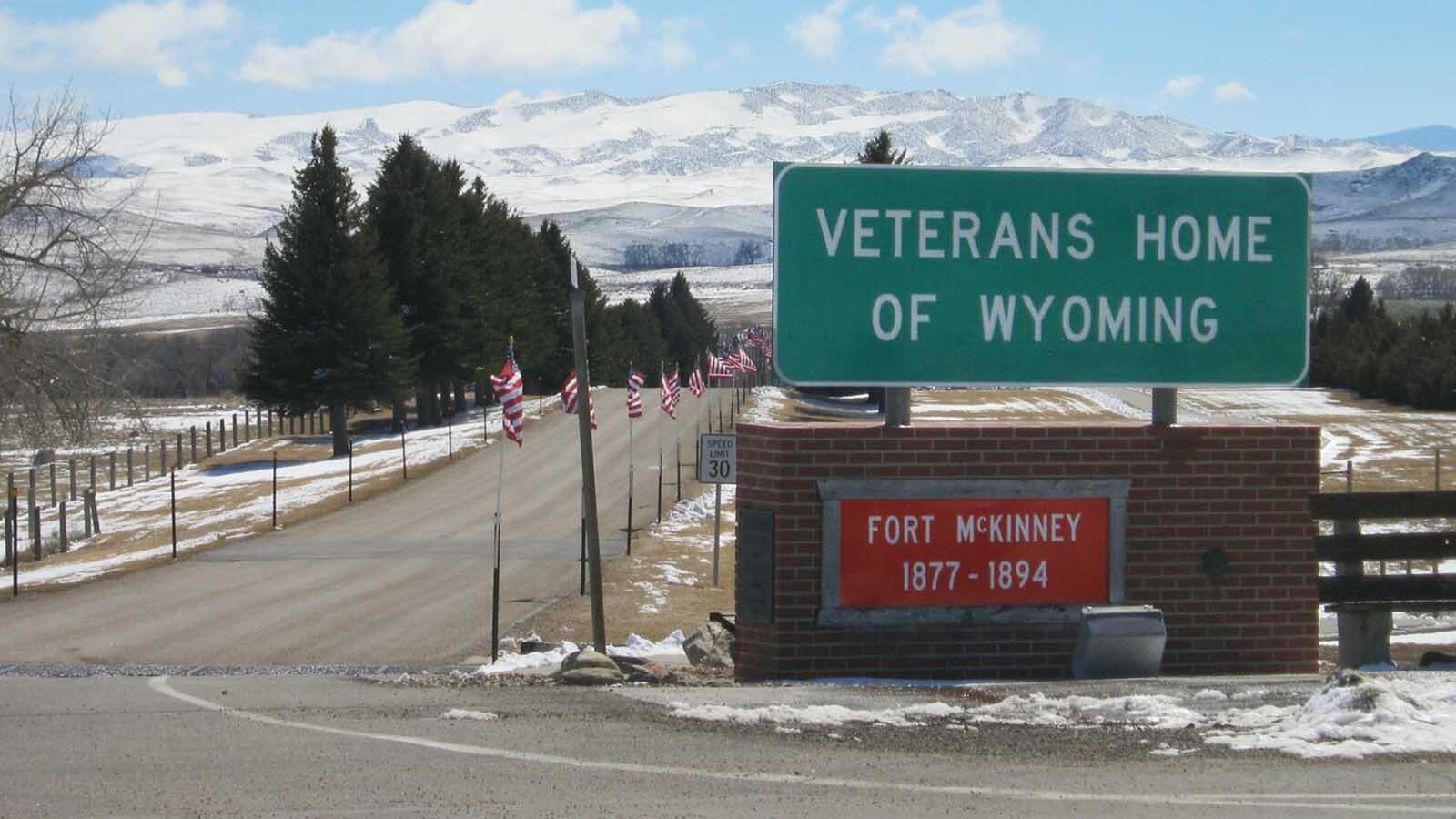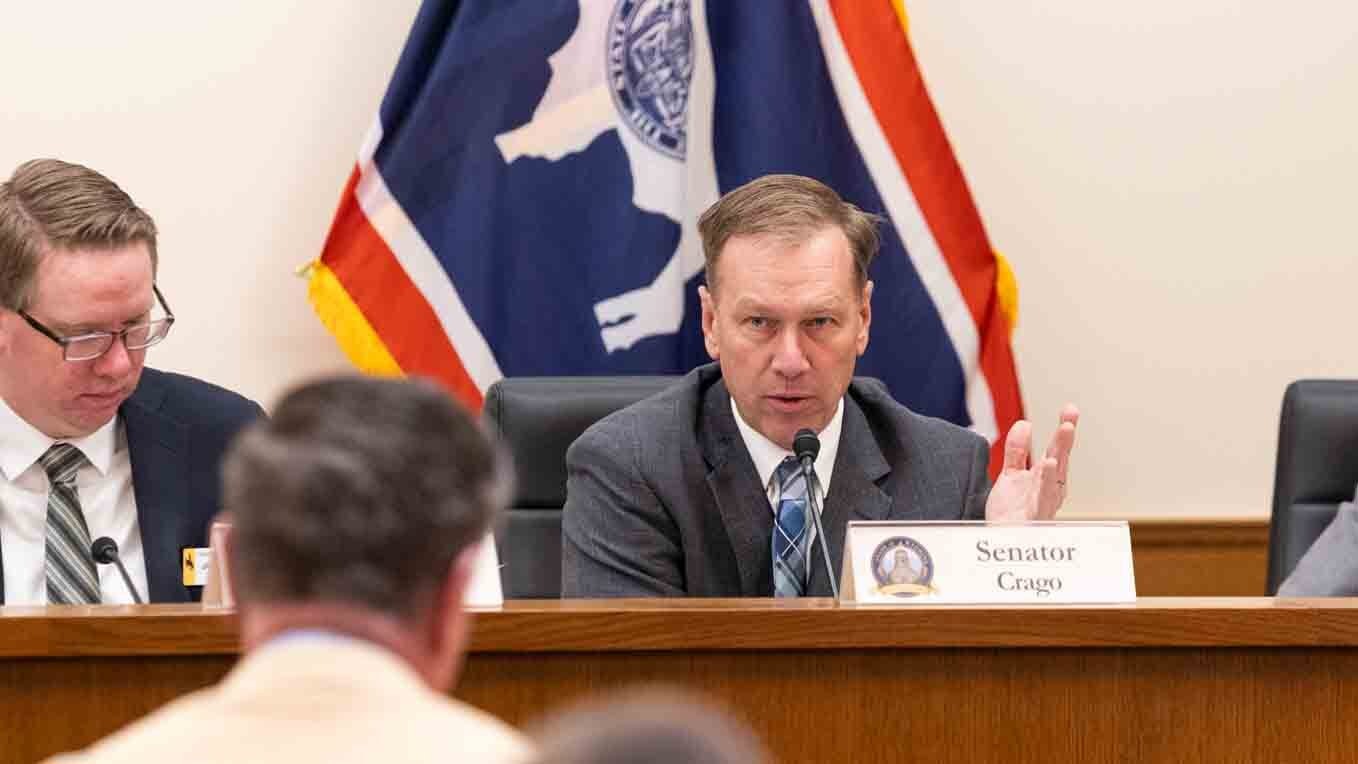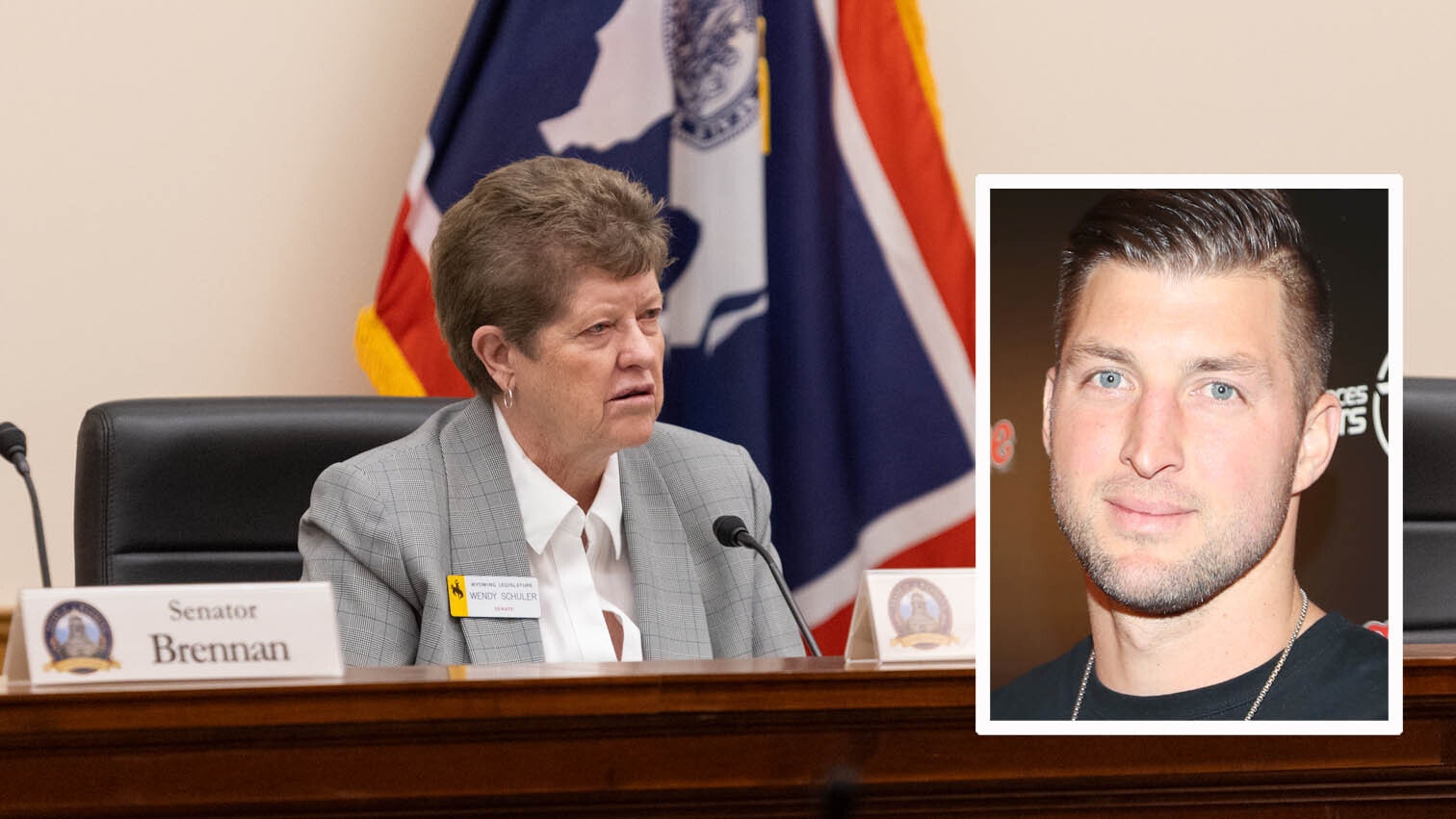A Wyoming legislative committee is proposing three tax hikes on multiple gaming industries, and a plan to insert a money-monitoring system into gaming machines across Wyoming bars, casino-style halls and truck stops.
The flurry of draft proposals came at the end of a Thursday meeting of the Legislature’s Select Committee on Capital Financing and Investments in Cheyenne.
Proponents of the increase said it’s time for tighter regulations and higher taxes in light of the gaming industry’s exploding “proliferation” of the state.
Detractors, from the gaming and related industries, said the taxes will harm businesses and local workers and limit the competitive edge of companies that pay taxes to Wyoming.
The committee directed its staff to draft legislation to:
• Double the online sports wagering tax rate from 10% of revenues to 20%.
• Increase the 20% tax on net proceeds of skill-based amusement games to 25% with the addition earmarked for highways.
• Increase the tax on historic horse racing from 1.5% to 2.5% (a figure that doesn’t encapsulate an additional 0.4% reserved for the breeder’s fund).
• Create a central monitoring system by which a third party could track the activity of gaming machines to verify their revenues for state taxing purposes.
Every Block Of All Our Communities
Committee Chair Tara Nethercott, R-Cheyenne, was a driving proponent of the measures.
“I think the state of Wyoming has been quite generous to the players in this space,” said Nethercott during the discussion on skill-based games, “giving them almost exclusive access to the market, in a proliferated rate — having infiltrated every block of all our communities.”
In a follow-up text to Cowboy State Daily on Friday, Nethercott said the proposed increases are consistent with industry standards in other states.
In Wyoming, gaming “has benefitted from modest regulation and little oversight,” she added. “As the industry has grown exponentially in recent years, Wyoming needs to establish enhanced oversight and revenues to match the growing needs from impacts in our communities.”
A Wyoming Department of Health official testified at the meeting that the agency doesn’t have specific programming for gaming addictions.
Nethercott said she expects that to change.
“I think you will soon. In light of the continued proliferation of gaming, that’s not going to go away,” she said. “Right now it doesn’t make sense but in two, three years, will it?”

In Groups Of Four
Nethercott said she’d support the hike from 20% to 25% taxation on the net proceeds of skill games.
Rep. Bob Nicholas, R-Cheyenne, offered to have the increase go toward highways, and Nethercott called that a “friendly amendment.”
As Wyoming County Commissioners Association Executive Director Jerimiah Rieman approached the committee, Nethercott quipped that perhaps the counties want a “piece of that pie.”
The counties do.
Rieman said it’s “appropriate” not to forget county governments in that arrangement, and that they are responsible for roughly two-thirds of the road systems in the state. Other local governments also maintain roads, Rieman added.
Nethercott also pointed to the skill gaming industry’s total revenues in Wyoming, urging her fellow committee members to find those on the Wyoming Gaming Commission’s website.
In 2024, those revenues were $24.9 million after taxes across 16 vendors. Individually, the vendors ranged in intake from about $7,000 (Steel Wheel Gaming) to about $4.1 million after taxes (Jenkins Music) that year.
The state and local governments took in about $6.2 million in taxes from the total $31.13 million in net revenue, says the Wyoming Gaming Commission’s report on skill games.
Of the tax haul, $1.5 million went to counties, $1.2 million went to cities or towns hosting those machines, $622,690 went to the Wyoming Gaming Commission and $2.8 million went to the state’s public school foundation account, says a chart the Wyoming Legislative Service Office (LSO) presented at the meeting.
The Fun At The Bar
Jonathan Downing, who represents Cowboy Skill LLC, told Cowboy State Daily that the hike, if it passes, will hurt small businesses and fraternal clubs, where the skill games are by law situated in groups of no more than four machines.
“If the Wyoming Legislature passes this tax increase, it would make Wyoming’s tax rate (on these games) one of the highest in the country,” said Downing.
He noted that the businesses where the games sit employ Wyoming workers and said having to defend against “such a significant tax increase sends a discouraging message” to investors looking to contribute to Wyoming’s economy.
Mike Moser, executive director of the Wyoming State Liquor Association, agreed, saying that gaming companies would likely transfer the loss onto the host businesses’ cut of revenues, rather than cut into their own or shave down people’s winnings and make the games less fun.
These games may sit near pool tables or dart boards and are part of the “fun” offering at bars, said Moser, adding that it’s common to see two pool players alternating between shooting with the cue and playing skill games as their turns revolve.
In The Pool
The skill-based amusement industry wasn’t the only one facing a late-day surprise Thursday.
The committee passed a motion to draft a tax increase on pari-mutuel, or pool betting, which encompasses horse race wagering from live, to simulcast, to slot-machine-like historic horse racing.
A representative of the industry lodged her protest.
“The reason we are here (at this meeting) today is because our company lives and works here,” said Tracy Lacock, general counsel for Wyoming Downs and 307 Horse Racing. “We employ 400 people in this state. We have 20 corporate officers in this state. We’re paying benefits. We’re paying life insurance, health insurance.”
Another 100 seasonal employees work for the merged companies, and the companies pay property taxes, leases and “lots of overhead,” said Lacock.
She urged the committee to “think about” the way a tax hike would impact Wyoming workers, business infrastructure and competitiveness.
The parimutuel industry is taxed uniquely, with a smaller tax percentage (1.5% plus 0.4% for the breeder’s fund) on the much larger figure of “handle,” or all the dollars played — a sliver of which return to the industry.
For example, pari-mutuel wagering saw a $2.15 billion handle in 2024, with historic horse racing machines bringing most of that money.
The industry returned more than $1.9 billion of that to the public as payout, and broke off $765,265 to permittees, the figures show.
Of the remaining portion, $8.5 million went to the breeder award fund; $19.1 million went to cities and towns; $5.4 million went to the gaming commission; and $5.3 million went to the state’s savings account.
The gaming commission put another $811,464 of its intake into the state’s gaming account, says an LSO presentation presented Thursday.
That leaves potentially millions remaining for the industry, though the exact figure is debatable since "handle" can include winnings re-played.
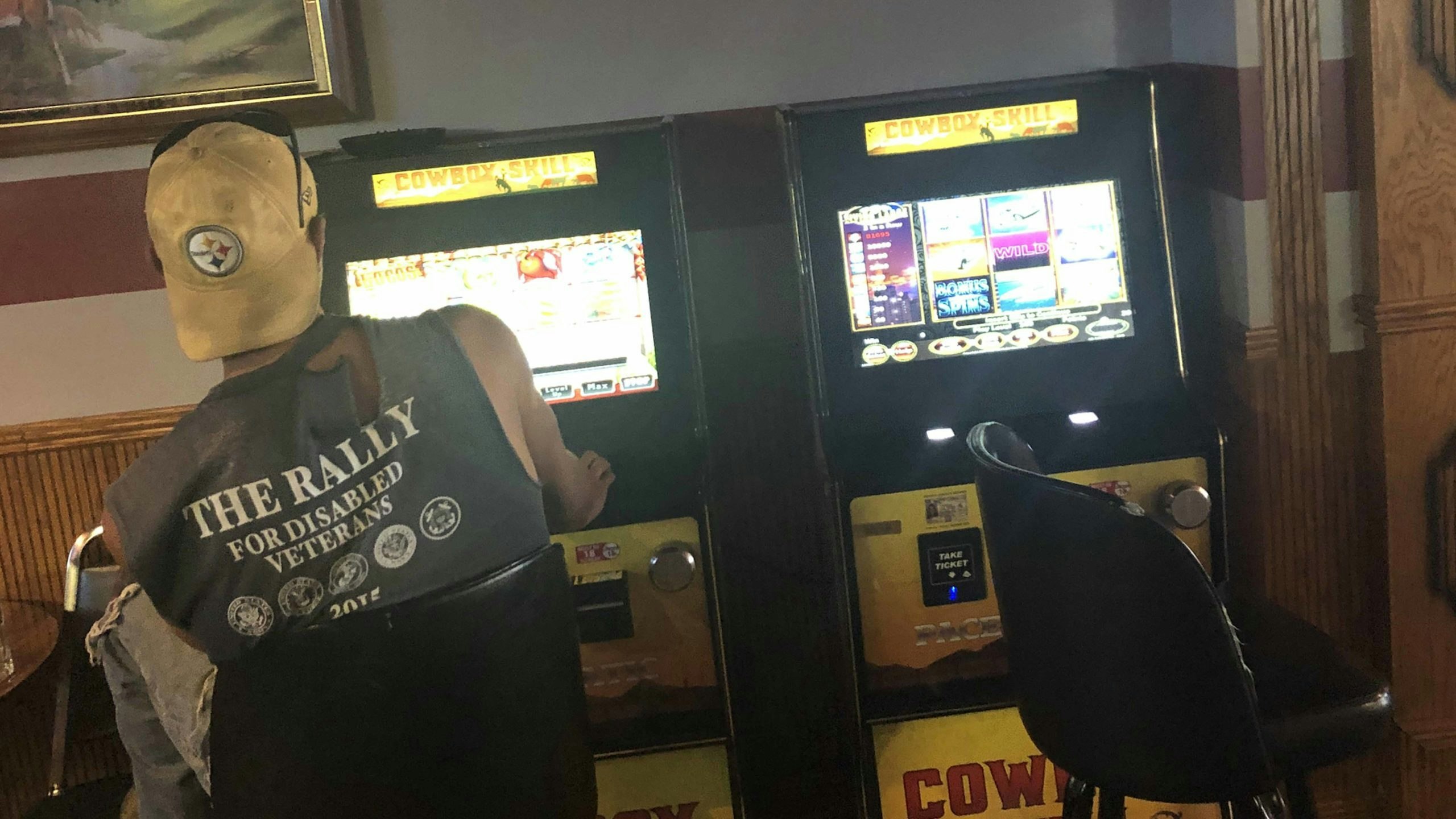
Looking At You, Sports Betting
Legislative Service Office fiscal analyst Karen Vaughn, while presenting her report on gaming, told the committee that Wyoming taxes sports wagering companies lower than most states, at 10%.
The average tax nationally is about 19%, she said.
Illinois has a progressive tax structure with the high end at 40%, said Vaughn
“Excellent,” said Nethercott, and some chuckling and chatter rippled through the meeting’s attendees.
Rep. Liz Storer, D-Jackson, had made a motion to double the state’s sports betting tax.
Nicholas asked what the states surrounding Wyoming are doing.
Vaughn said she didn’t have the exact data but none of them is taxing at 10% or less.
The only reason Wyoming law allows and regulates sports wagering is because residents were doing it anyway, and the state figured it should lift taxes from the bets placed in-state, said Nethercott.
Storer’s proposition passed.
Hey, Now
In a Friday email to Cowboy State Daily, Nathan Click, spokesman for the Sports Betting Alliance — a group of leading gambling operators — cast the effort as discouraging to sound business practices.
He said that 90% of the money wagered returns to customers in winnings, while the “vast majority” of the remaining 10% goes toward building out technology, creating responsible gaming tools, forging local partnerships and marketing.
“Customers in states that have raised sports betting taxes wind up with a more costly sports betting experience — from worse promotions to decreased payouts,” said Click. “These type of changes also make legal sports betting products less able to compete against illegal and offshore sports betting operators that pay zero in taxes but are widely available online to bettors in Wyoming.”
Still, he added, “we look forward to collaborating with the Legislature and educating members on our business.”
The Wyoming Gaming Commission charges a $100,000 permit fee for an initial sports wagering operator permit. Permits and renewals are valid for five years, after which the commission charges $50,000 for a renewal, state law says.
Vendors are charged $10,000 for their initial permits, and after five years they pay $5,000 for a renewal. The first $500,000 gathered in permitting fees go toward the administration of gaming regulation, while the overflow goes to the state’s general fund on a quarterly basis, says the law.
Up to $300,000 of the sports wagering revenue tax goes to local governments to combat or treat gambling addictions, and the rest goes to the state’s general fund.
Clair McFarland can be reached at clair@cowboystatedaily.com.


